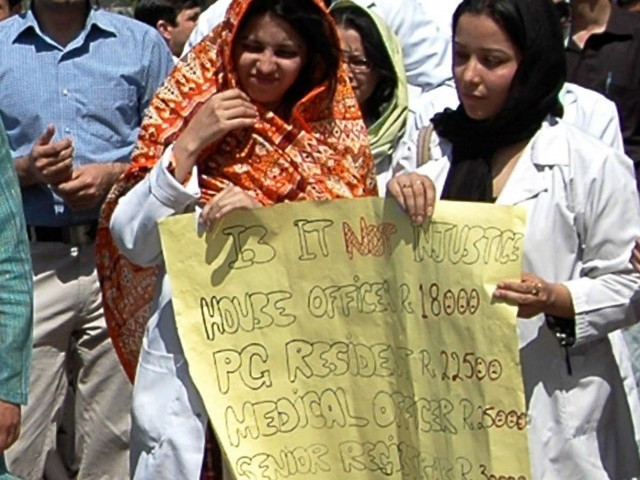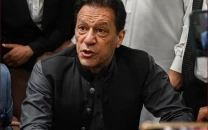Hospitals’ strike: What’s all the ruckus about?
Health professionals fearful of HPS as govt insists the bill gives them better salaries, allowances.

Confusion about the new service structure for health professionals has led to another spate of protests and strikes by non-medical staff and paramedics adding to the miseries of patients who visit three major hospitals in the federal capital.
About 400,000 patients have been turned away untreated from the outpatients departments (OPDs) at the hospitals in the past one month.
The strike, called by the joint action committee (JAC) of health professionals and non-medical staff, entered 33rd day on Thursday.
The protesters opted to remain under the old basic pay scale and refused to adopt the Health Personnel Pay Scale under the new Career Structure for Health Personnel (CSHP). The new bill was tabled before the Parliament on January 13 and is yet to be passed.
Health Services Academy executive director and former director-general of health, Dr Asad Hafeez, said there is a misconception about the CSHP Bill which has led to the protest.
“The proposed bill is not something newly formulated; it is actually the same old BPS system with a bit added to it, and these additions are giving [medical and nonmedical staff] more,” he said. He also noted that the bill does not make any mention of privatising federal hospitals.
“The bill clearly states that health personnel adopting HPS will continue to be treated as government servants. However, they have reservation over the term [government servant] used in the bill, which actually means a civil servant,” he said.
The new pay structure
The bill says that all health personnel under HPS 1-13 shall be entitled to the same perks and privileges prescribed by the federal government for equivalent BPS scale posts, Hafeez said.
“Over four years have been spent making this new career service structure and every clause has been made with full care and responsibility,” he added.
He identified another reason for the misconception that a few grades of BPS have been merged into a single grade under the HPS, while under the new career structure; there will be an increase in the salaries of all health personnel, including doctors, dentists, specialists, pharmacists, nurses, paramedics and support services personnel.
Under the new system, the salaries of postgraduate trainee doctors, both medical and dental, have been increased from the Rs20,000 to Rs50,000, and those of the house officers from Rs18,000 to Rs24,000.
The minimum starting salary of a young doctor under HPS will be Rs60,000 along with a special non-practicing allowance (NPA) ranging from Rs20,000 to Rs80,000, an incentive to ensure the doctors’ presence in hospitals.
A new performance evaluation system for health personnel will be established, with quantifiable targets relevant to their jobs. The system will be prescribed by the government on the recommendations of the Pay and Pension Commission.
Some health professionals from Polyclinic Hospital and Pakistan Institute of Medical Sciences (Pims), requesting not to be named, said the people behind the strike are the ones who will lose their chances of promotions due to lack of qualifications and experience required under the HPS.
However, JAC representative Manzar Abbas Naqvi insisted that the bill will make federal hospitals autonomous, leaving workers with no job security or allowances.
Published in The Express Tribune, February 3rd, 2012.



















COMMENTS
Comments are moderated and generally will be posted if they are on-topic and not abusive.
For more information, please see our Comments FAQ